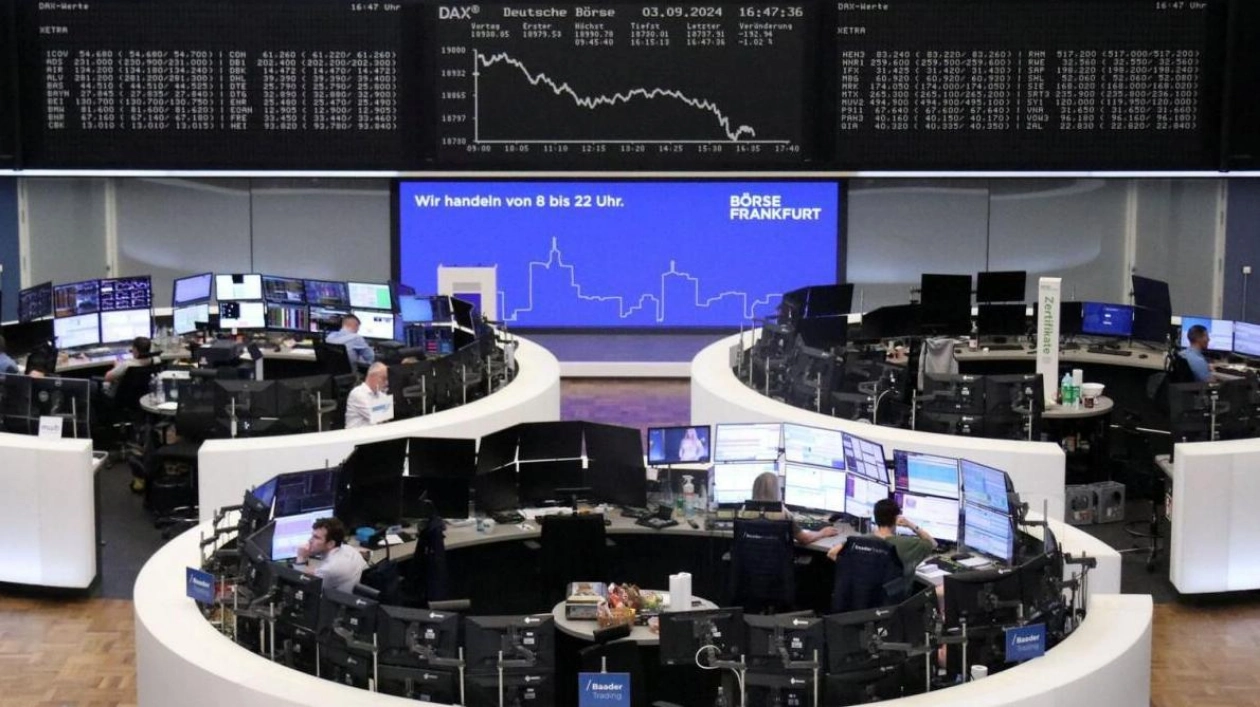Global shares experienced a decline on Wednesday, influenced by a decrease in tech stocks, particularly due to a significant sell-off in U.S. chipmaker Nvidia, and concerns over diminishing global growth prospects. This situation negatively impacted riskier assets, leading to a drop in oil prices and an increase in bond prices. European markets saw a 1% reduction, with London, Paris, and Frankfurt experiencing declines ranging from 0.6% to 0.9%. Semiconductor firms were notably affected, with ASML Holdings falling by 5.4%. Anticipation of further losses was evident on Wall Street, where stock futures also dropped, with S&P 500 and Nasdaq futures falling by 0.4% and 0.5% respectively.
The previous day, Wall Street had closed significantly lower, with Nvidia, a leader in artificial intelligence, losing a record $279 billion. Justin Onuekwusi, CIO at St. James's Place, highlighted the risk of market concentration, suggesting that volatility in key stocks can impact the entire market. The MSCI world equity index, covering shares from 47 countries, decreased by 0.5%. Historically, September has been a challenging month for stocks, and recent weak U.S. manufacturing data has added to the market's woes.
Investors observed increased volatility as liquidity returned to markets post-summer. Brent crude futures and U.S. crude both fell by 0.6%, nearing their lowest levels since December, following a nearly 5% drop on Tuesday. The decline in oil prices was intensified by concerns about China's slow economic recovery and the potential for a global economic slowdown, which would reduce fuel demand. Eurozone government bonds maintained their gains, with German Bund yields experiencing their largest daily fall in a month.
In Asia, stock benchmarks in Tokyo and Taipei led the decline, each falling by over 4%. MSCI's index of Asia-Pacific shares outside Japan ended 1.9% lower. Tech stocks in Asia were particularly hard hit, with Advantest, a Japanese chip-testing equipment maker and Nvidia supplier, losing 7.7%, and Taiwan's TSMC dropping more than 5%. Vishnu Varathan, head of macro research for Asia ex-Japan at Mizuho Bank, noted multiple factors contributing to the market's downturn, including Nvidia's performance, tech sector issues, and economic concerns in the U.S. and China.
The safe-haven Japanese yen benefited from the stock market decline, strengthening by 0.4% to 144.89 per dollar. The dollar remained stable, reflecting a preference for safe assets. Upcoming U.S. economic data, including job openings, jobless claims, and the non-farm payrolls report, could further impact market risk appetite. The Federal Reserve's focus on the labor market means that Friday's payrolls report could influence the size of the expected rate cut this month. Economists anticipate a rebound in U.S. job additions in August, expecting an increase of 160,000 jobs. Currency and U.S. Treasury movements were relatively subdued compared to equity market fluctuations, with the benchmark 10-year U.S. Treasury yield falling to 3.82%.






